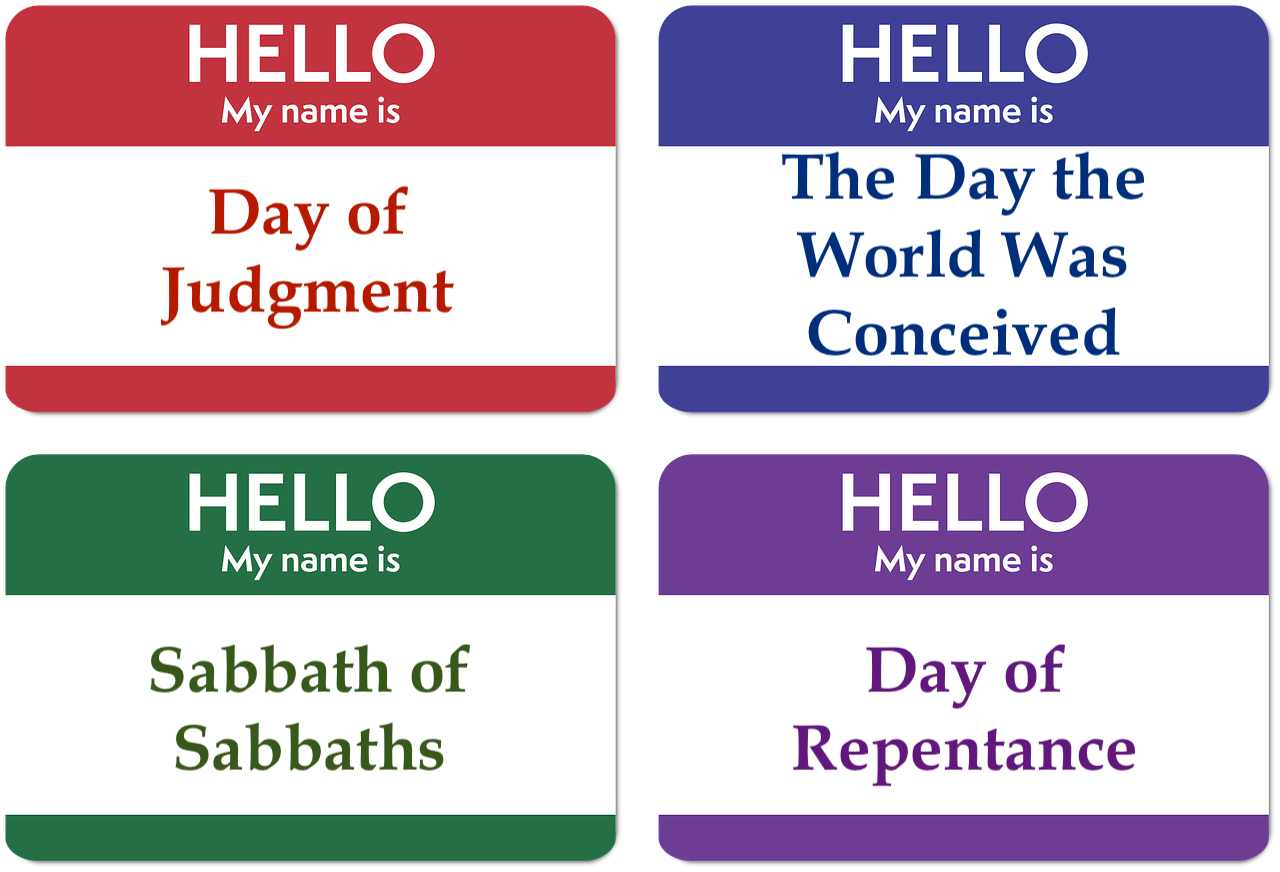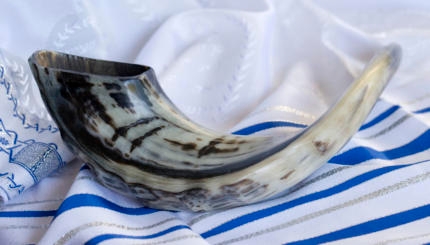Rosh Hashanah and Yom Kippur, together known as “the High Holidays,” come at the beginning of the Jewish year and are both joyous and solemn. They are also ancient and contain many layers of meaning so, not surprisingly, these holidays go by more than one name.
Rosh Hashanah (literally: “Head of the Year”) is the Jewish New Year. Traditionally, Rosh Hashanah is the day on which human beings are called to account for their behavior in the previous year. God weighs their rights and wrongs and, in a dramatic image fleshed out in the haunting Unetaneh Tokef prayer, inscribes deserving people in the Sefer Chaim, the Book of Life, for the coming year. For this reason, Rosh Hashanah is also known as Yom Hadin, “the Day of Judgment.” It is also called Yom Hazikaron, the “Day of Remembrance” because Jews pray that God will remember them in the coming year (not to be confused with the modern Israeli Memorial Day which goes by the same name). In the Hebrew Bible, Rosh Hashanah is called Yom Teruah, the “day of blasting” because it is the day when Jews blow the shofar, a ram’s horn that has been rendered into a trumpet. Rosh Hashanah is also understood to be the joyous anniversary of the day on which God created the world, and is therefore also called Hayom Harat Olam, “the day the world was conceived.”
Ten days after Rosh Hashanah comes Yom Kippur, which literally means “Day of Atonement.” It is also sometimes referred to in the plural, Yom Hakippurim, “the Day of Atonements.” Traditionally, Jews have the ten days between Rosh Hashanah, the day on which God judges the world, and Yom Kippur, the day on which those judgments are sealed, to do teshuva, repentance, and atone for their wrong-doings. These ten days are collectively known as the Yamim Nora’im, “Days of Awe.” Yom Kippur is an especially solemn day, considered even a rehearsal for one’s own death. It is also a day that is extra sacred, even more so than the holy Sabbath. For this reason, it is called Shabbat Shabbaton, “Sabbath of Sabbaths.”



